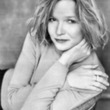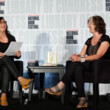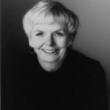Stones from the river
Description
More Details
9780684844725
9780684800356
9780671780753
068484477
Similar Titles From NoveList
Similar Authors From NoveList
Published Reviews
Booklist Review
"Every time Trudi took a story and let it stream through her mind from beginning to end, it grew fuller, richer, feeding on her visions of those people the story belonged to until it left its bed like the river she loved." Stories--what they are; how we tell them; how they reflect, distort, and even create reality--are at the heart of this bold reimagining of twentieth-century German history. Readers of Hegi's Floating in My Mother's Palm (1990) will remember Trudi Montag, the dwarf librarian and town gossip, as a secondary character in a jewel-like collection of interconnected vignettes. Here Trudi moves to center stage, as she chronicles the lives of the residents of rural Burgdorf from World War I into the early 1950s. Though Hegi's canvas is broad here, the focus is always on individual lives, not on the horrific events that swirl around them. As Trudi moves from using gossip to extract revenge, to preserving history in a time of silence, to telling a story for the sake of the story, she comes to understand the humanizing power of narrative. "It had to do with what to enhance and what to relinquish. And what to embrace." Telling a story and living a life--this compelling novel makes us see how little difference there is between them. ~--Bill Ott
Publisher's Weekly Review
A dwarf woman struggles to find acceptance in her small German town in this novel spanning both world wars. (Apr.) (c) Copyright PWxyz, LLC. All rights reserved
Library Journal Review
At the beginning of World War I, Trudi Montag, a dwarf, is born to an unstable mother and a gentle father in a small Rheinish town. Through the Weimar Republic and the Third Reich into the era following World War II she first struggles with--and later draws strength and wisdom from--her inability to fit into a conformist and repressive society. As the town's librarian and historian, Trudi keeps track of many secrets, revealing the universality of her experience. While Hegi's ( Floating in My Mother's Palm , LJ 5/15/90) treatment of history and politics is engaging, her novel's appeal lies in the humanity of its characters. Particularly strong is her portrayal of, and insight into, the community of women and children as they react to changing conditions in the town. A sensitive and rewarding book.-- Michael T. O'Pecko, Towson State Univ., Md. (c) Copyright 2010. Library Journals LLC, a wholly owned subsidiary of Media Source, Inc. No redistribution permitted.
Kirkus Book Review
Life in small-town Germany (1915-52) as chronicled by Trudi, a dwarf with her own agenda--courtesy of the German-born Hegi (Floating in My Mother's Palm, 1990, etc.) Trudi, whose birth drove her beautiful mother into madness and early death, carries a heavy burden. Her mother's madness was caused not by horror at Trudi's appearance but from guilt: while her husband was away fighting in WW I, she--pregnant--had an affair with his best friend. Trudi, then, a victim of guilt and madness, is an obvious metaphor for Germany--a witness for the prosecution, ``an underground messenger safeguarding her stories.'' Over the years she watches, listens, and slyly trades secrets for other secrets to add to her arsenal of information about the town. She, too, has allowed herself to be consumed by vengeance and hatred. Taunted and sexually assaulted as a young girl by four local boys, she had wished them ill, plotted their destruction, and now, when they all suffer, she begins to understand the corrosive power of hatred. Meanwhile, the town itself is a microcosm of German history as Trudi records its response to the economically distressed 1920's, the rise of Hitler, the growing anti-Semitism, and the postwar years when everyone wants to forget or deny their Nazi past. A slew of characters flesh out these events: courageous Frau Eberhart, whose Nazi son betrays her; Leon Montag, Trudi's wise and brave father; her lover Max, who is killed in the Dresden bombing; and friend Ingrid, who, obsessed by sexual guilt, commits suicide. Trudi, with her own share of sorrows and joys, survives to tell her story--all about ``what to enhance and what to relinquish. And what to embrace.'' Small-town life and the familiar Third Reich horrors are vividly evoked, but Trudi herself is more problematical. Trying to be too much--including a female alter ego for Gunter Grass's dwarf drummer--she is never quite in focus or really credible.
Library Journal Reviews
At the beginning of World War I, Trudi Montag, a dwarf, is born to an unstable mother and a gentle father in a small Rheinish town. Through the Weimar Republic and the Third Reich into the era following World War II she first struggles with--and later draws strength and wisdom from--her inability to fit into a conformist and repressive society. As the town's librarian and historian, Trudi keeps track of many secrets, revealing the universality of her experience. While Hegi's ( Floating in My Mother's Palm , LJ 5/15/90) treatment of history and politics is engaging, her novel's appeal lies in the humanity of its characters. Particularly strong is her portrayal of, and insight into, the community of women and children as they react to changing conditions in the town. A sensitive and rewarding book.-- Michael T. O'Pecko, Towson State Univ., Md. Copyright 1994 Cahners Business Information.
Publishers Weekly Reviews
Returning to Burgdorf, the small German community she memorably depicted in Floating in My Mother's Palm , Hegi captures the events and atmosphere in the country prior, during and after WW II. Again she has produced a powerful novel whose chilling candor and resonant moral vision serve a dramatic story. With a sure hand, Hegi evokes the patterns of small-town life, individualized here in dozens of ordinary people who display the German passion for order, obedience and conformity, enforced for centuries by rigid class differences and the strictures of the Catholic church. The protagonist is Trudi Montag, the Zwerg (dwarf) who becomes the town's librarian; (she and most of the other characters figured in the earlier book). A perennial outsider because of her deformity, Trudi exploits her gift for eliciting peoples' secrets--and often maliciously reveals them in suspenseful gossip. But when Hitler ascends to power, she protects those who have been kind to her, including two Jewish families who, despite the efforts of Trudi, her father and a few others, are fated to perish in the Holocaust. Trudi is a complex character, as damaged by her mother's madness and early death as she is by the later circumstances of her life, and she is sometimes cruel, vindictive and vengeful. It is fascinating to watch her mature, as she experiences love and loss and finds wisdom, eventually learning to live with the vast amnesia that grips formerly ardent Nazis after the war. One hopes that Hegi will continue to depict the residents of Burgdorf--Germany in microcosm--thus deepening our understanding of a time and place. (Mar.) Copyright 1994 Cahners Business Information.





































